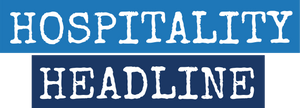The COVID-19 Pandemic brought about tremendous economic hardship throughout the United States and the world. Seen through initiatives like COVID relief funds and government unemployment stipends, the US government made a real effort to ease the economic burden felt by so many individuals. However, one specific initiative came to an end in this week in the form of student loan repayment.
Early this week, the US government officially ended the three-year halt on student loan payment and interest, with interest loans accruing again and actual payments resuming on October 1st. In short, this means that the average consumer will have less disposable income, and therefore might be less willing to spend on dining out. The average federal loan debt is about $37,000 per borrower, or about $300 in student loan payments per month. TransUnion's head of global research and consulting Charlie Wise believes that roughly 40 million consumers will face the "payment shock" when student debt relief ends.
Big chains are well aware of the shift coming their way. Wendy CEO Todd Penegor believes that student loan repayment could “provide a little bit of pressure against disposable income.” Darden CEO Rick Cardenas added that “It will be a headwind. Any time you take money out of consumers’ pockets, it’s a headwind.”
Cava, which has a slightly higher price point than Wendy’s, also expressed some concern on their latest earnings call. CEO Brett Schulman believes that student loan payments restarting was one of the "multitude of factors" up against consumers, along with higher gas prices, costly utility bills, and a "hawkish Fed." "We're mindful of those pressures. We saw a resilient consumer in Q2, but we'd be remiss if we didn't take those considerations into account."
Deutsche Bank analysts predicts that restaurants, along with bars and e-commerce, will be the hardest hit by the student loan payment restart, and could shrink total consumer spending by about “$14 billion per month, or an average of $305 per borrower.” When it comes to spending at restaurants, TD Cowen analyst Andrew Charles said he estimates up to "a 2% annual headwind to restaurant industry spending as student loan payments resume."
Meanwhile, Goldman Sachs predicts it will only create a “modest drag, shaving 0.2% off growth in consumer spending this year.” In reality, the American economy has already successfully endured a recession followed by a sharp increase in interest rates, all while phasing out pandemic relief. Josh Bivens, chief economist at the Economic Policy Institute think tank suggested, “the economy has really powered through it. So what is the straw that breaks the camel’s back? My guess is it’s not this. I don’t think it’s a big-enough thing.’’
The true impact will likely fall between these two predictions. According to NRN, at least 10 public companies discussed their “value proposition” during their latest earnings calls, with the world value specifically being mentioned over 340 times. Regardless of the true economic impact of the loan payment restart, brands are already recognizing a need to plan on how to best attract this substantial set of consumers. Loan repayments are not going away anytime soon and will continue to be a crucial aspect of consumer engagement into 2024 and beyond.


